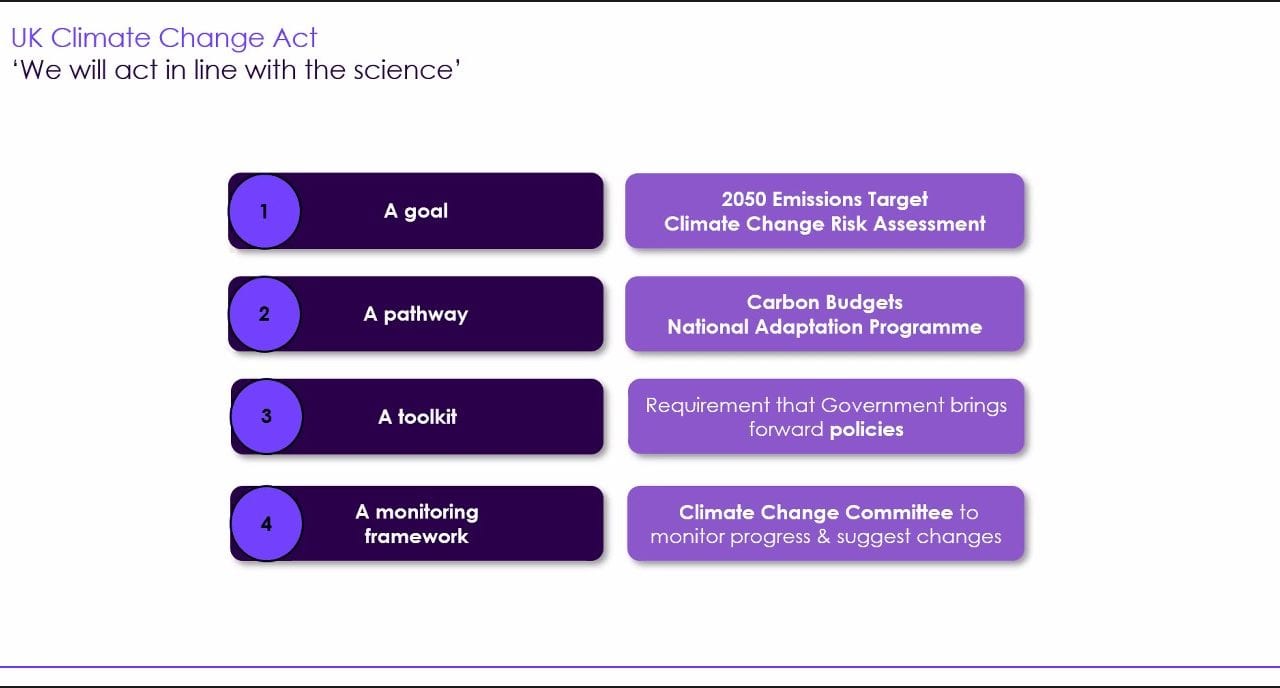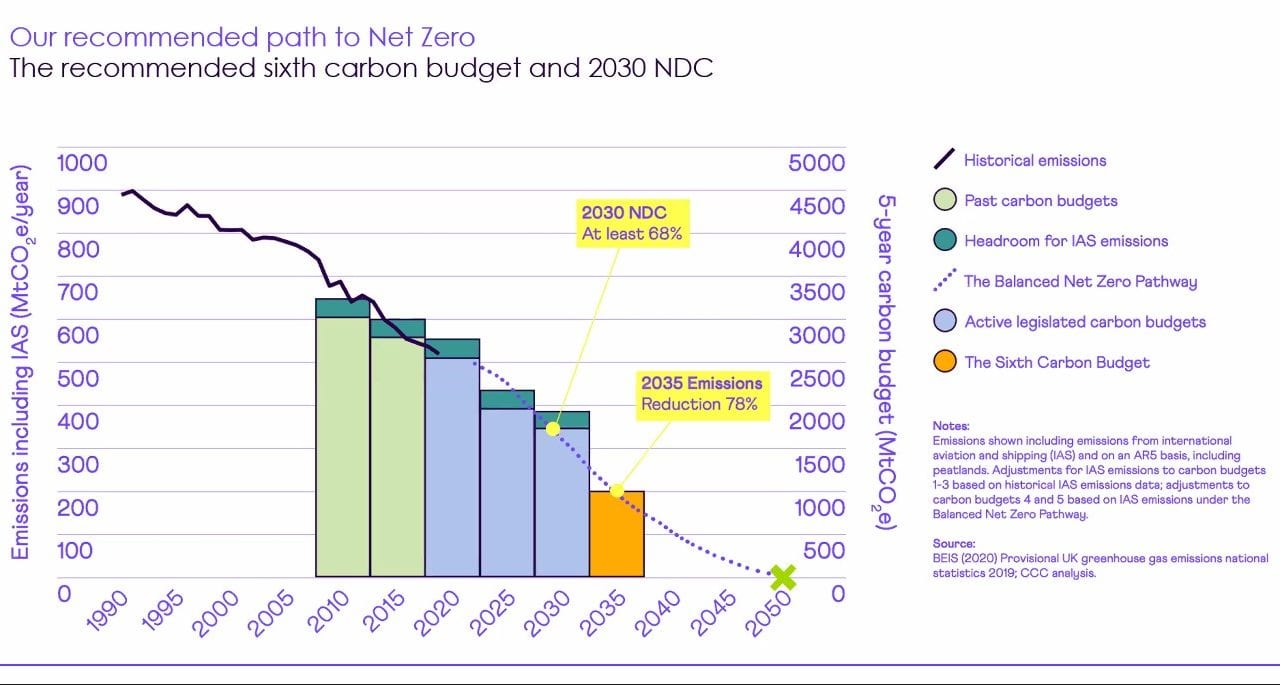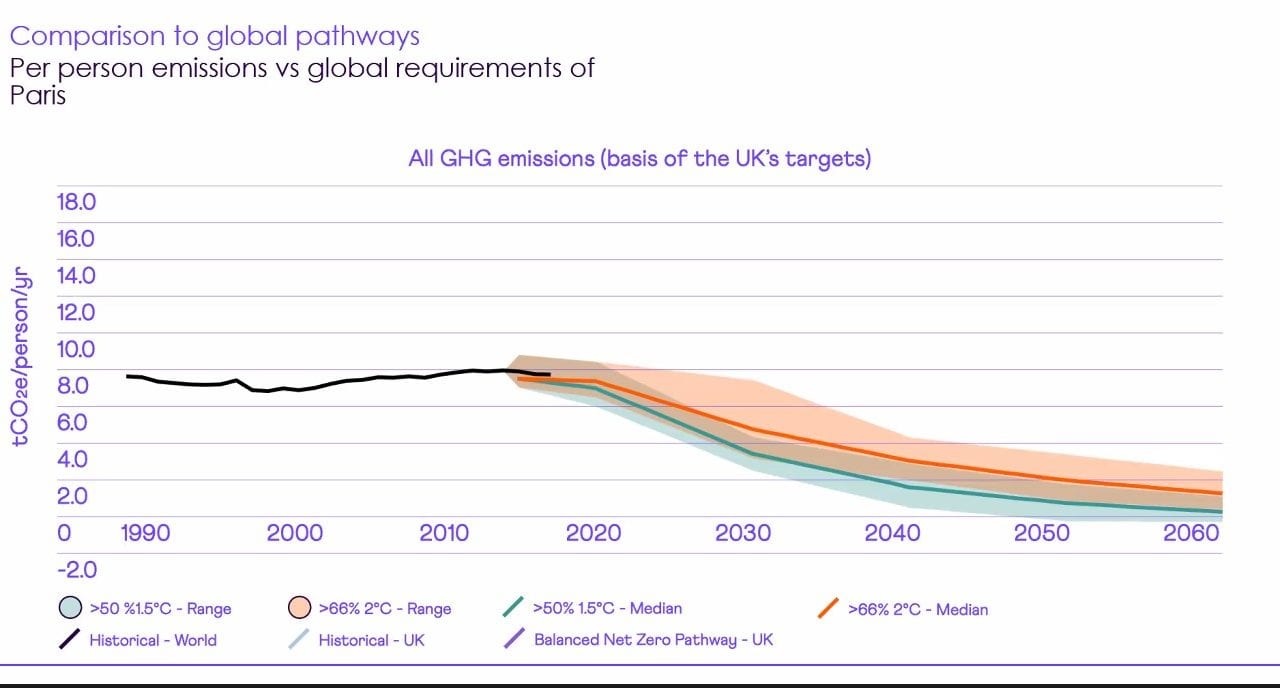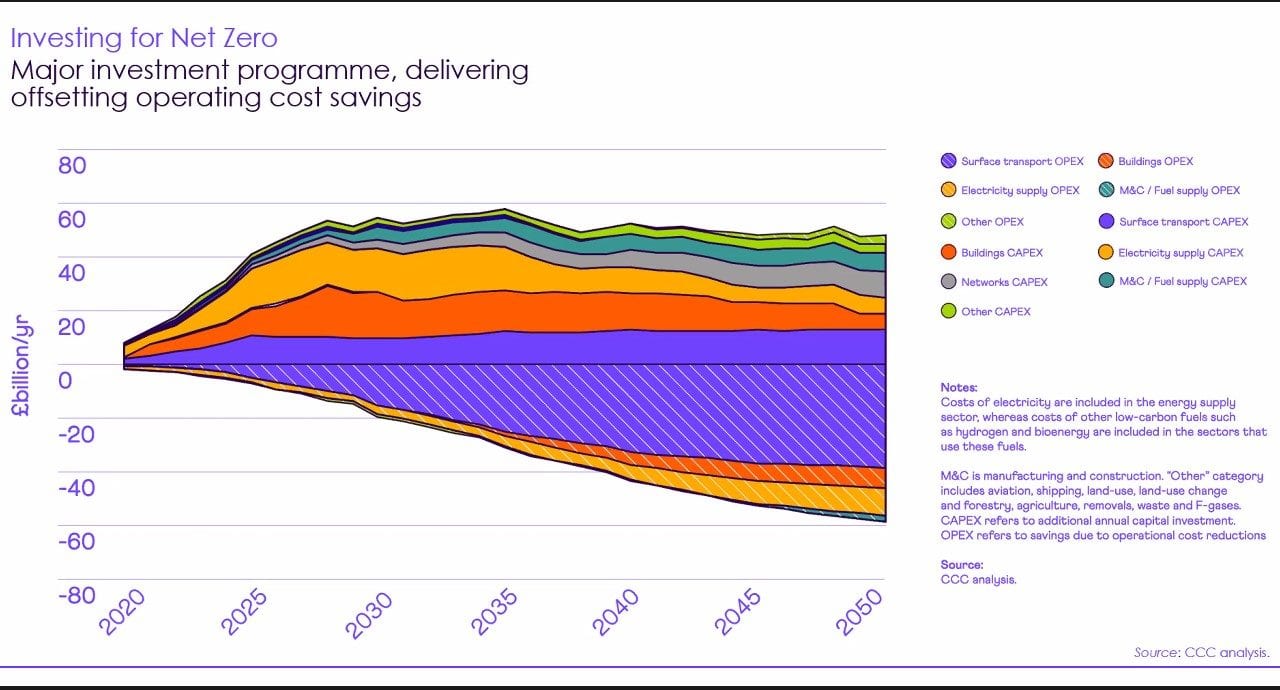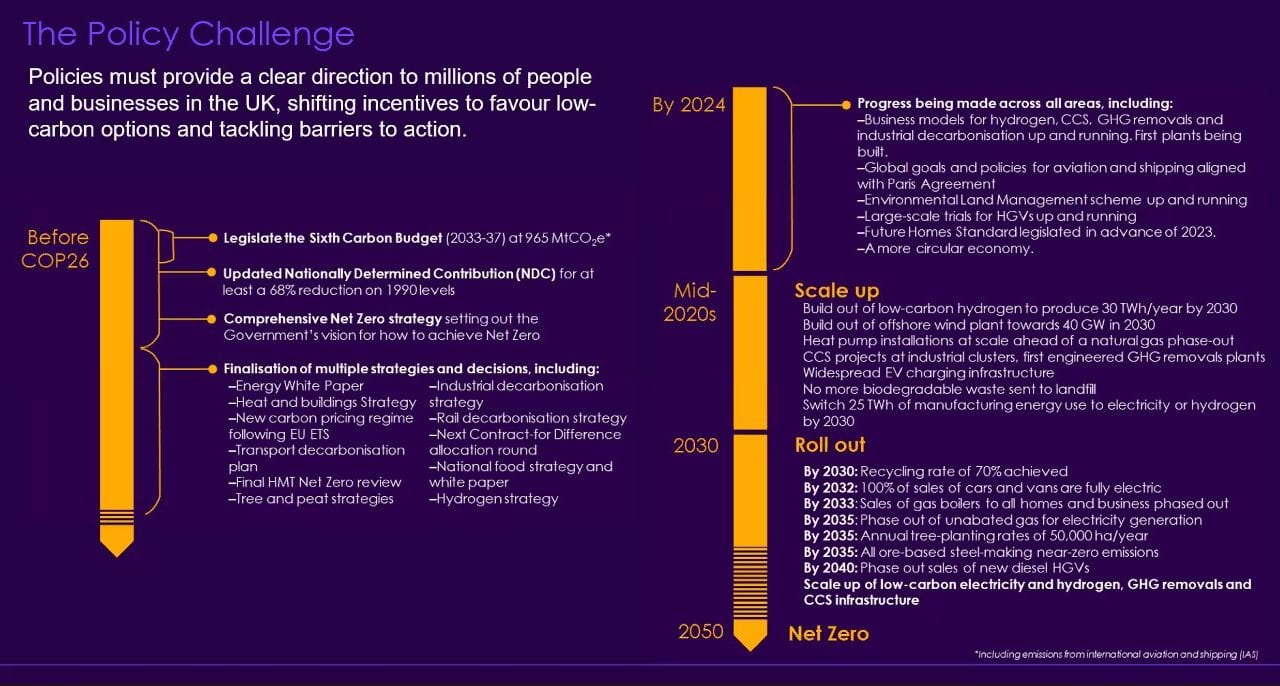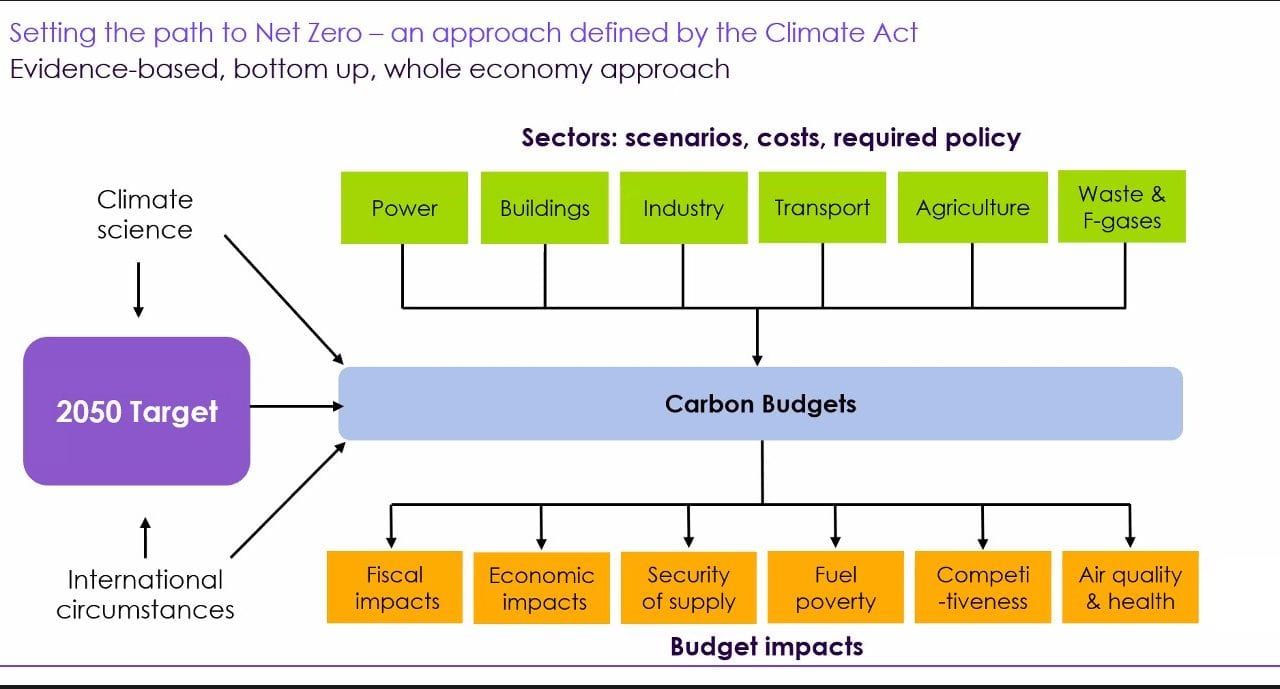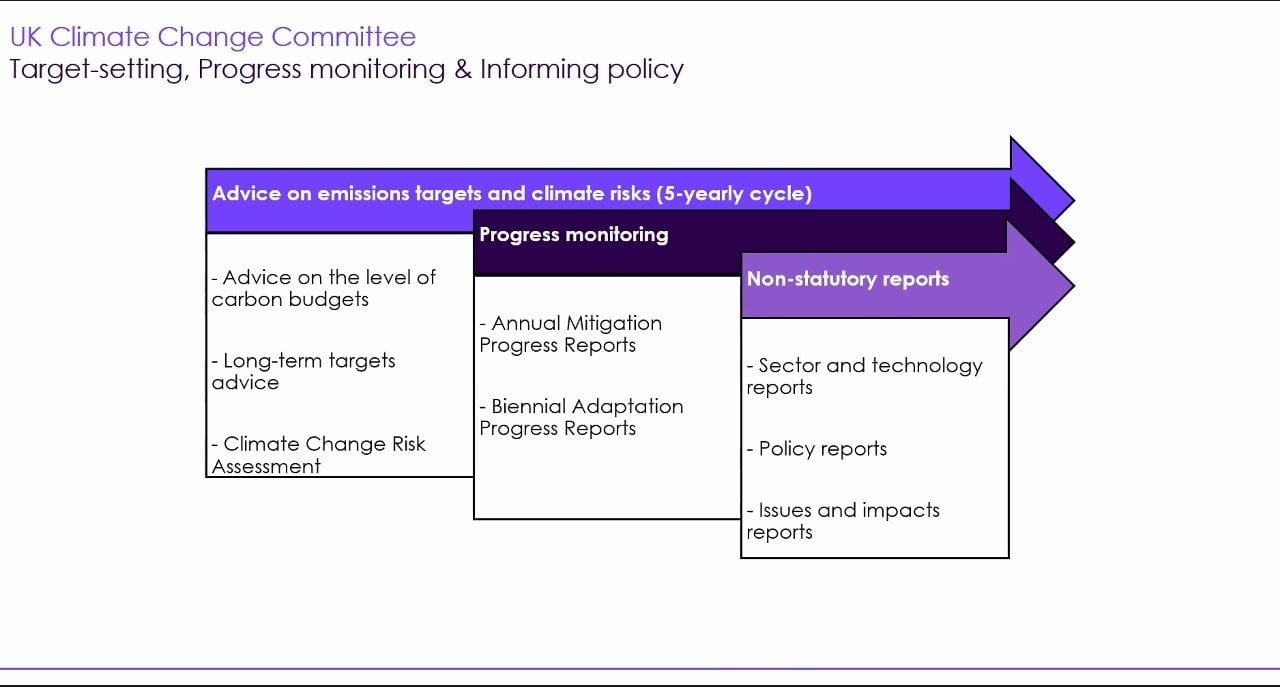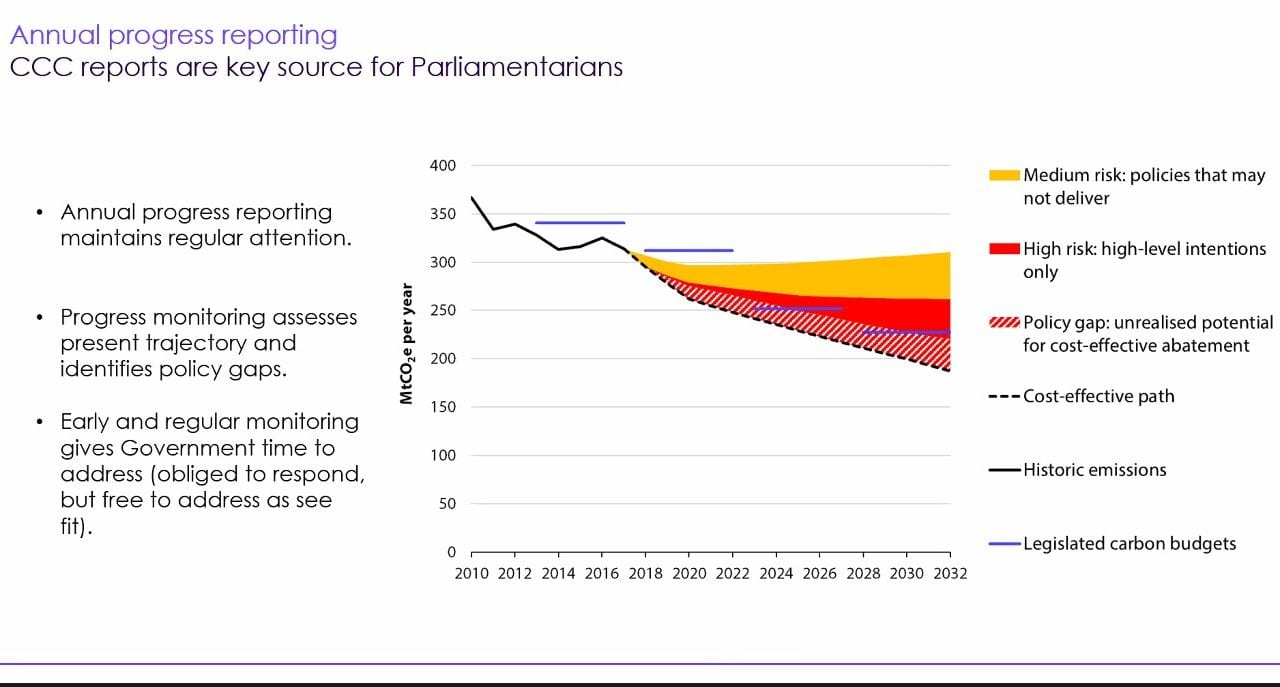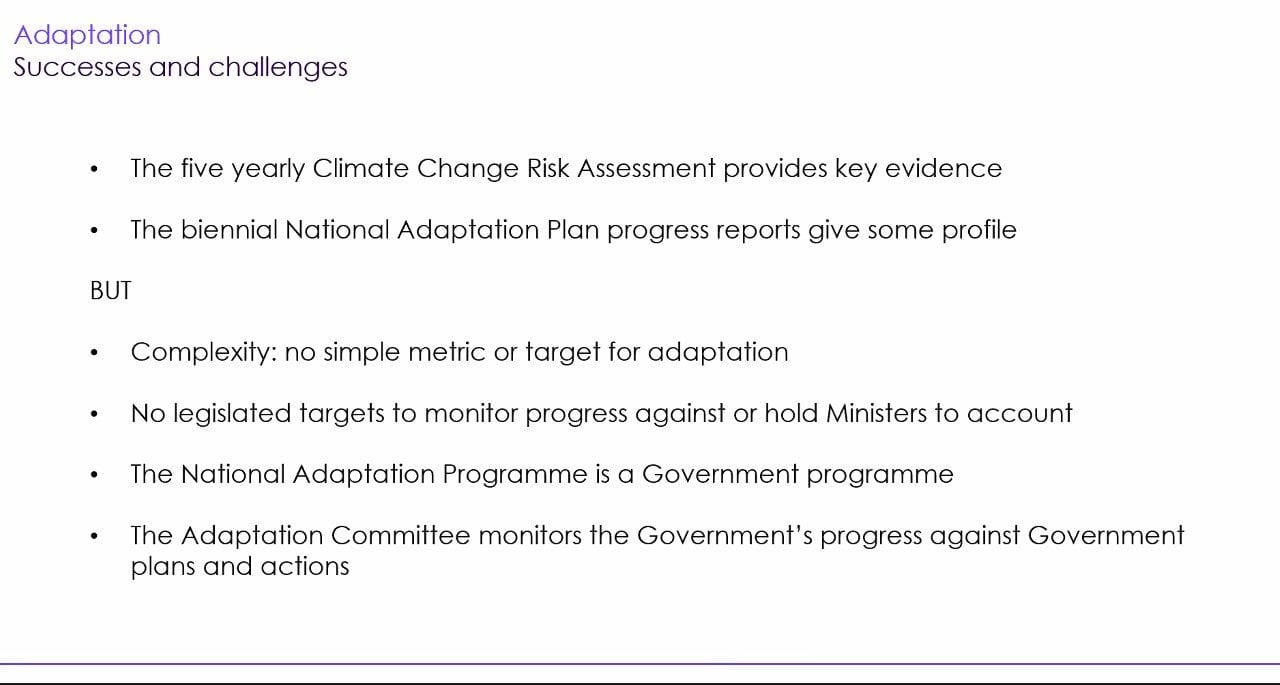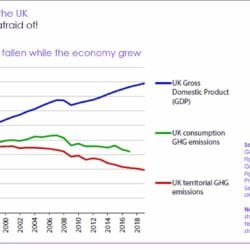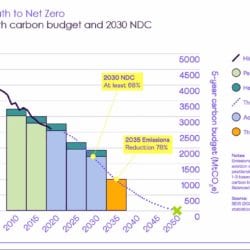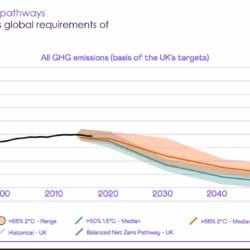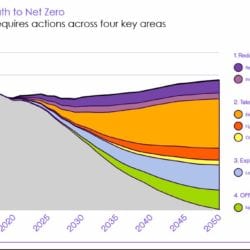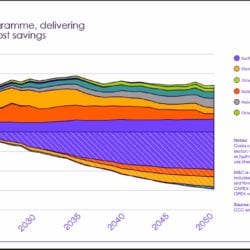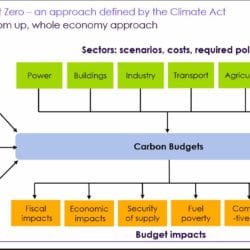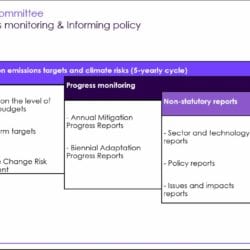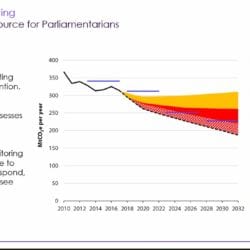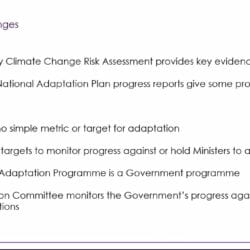In December 2017, the United Kingdom’s reported greenhouse gas emissions were 41% below 1990 levels while Canada’s were 19% above 1990 levels. IMAGE SOURCE: The National Observer In 2008, the UK government passed the UK Climate Change Act, which sets legally binding long-term emissions targets, along with 5-year carbon budgets 12 years in advance. To make sure the UK stays on track, the law covers all emissions in all years — not just a single target year in the far future. The Act also established the Committee on Climate Change (CCC) to ensure that targets are set and monitored based on non-partisan, evidence-based, and expert advice. The UK outperformed its first 2 carbon budgets (2008-2012 and 2013-2017) and is set to outperform the third (2018-2022). In a June 2018 report, the CCC made specific recommendations for the UK to meet its fourth and fifth carbon budgets (2023-2027 and 2028-2032). In contrast, according to Environment and Climate Change Canada’s 2018 climate pollution projections report, Canada’s emissions are projected to be less than halfway to Canada’s 2030 Paris Agreement target. As part of a plan for Canada to do its fair share in keeping global heating below 1.5 °C, we can use the UK Climate Change Act as a model, which was the recommendation of Ontario’s Environment Commissioner in Climate Action in Ontario: What’s Next? RESOURCES: Below are slides from a February 11, 2021 presentation by Mike Thompson of the UK Committee on Climate Change organzed by a team at the University of Calgary.LASER TALK: The UK Climate Change Act
Insights Briefings: Sharing the UK approach to addressing climate change.
CLIMATE ACCOUNTABIITY The-role-and-influence-of-the-UKs-Committee-on-Climate-Change_policy-brief
CLIMATE ACCOUNTABILITY 10-years-of-UK-Climate-Change-Act-Summary-Policy-Brief



